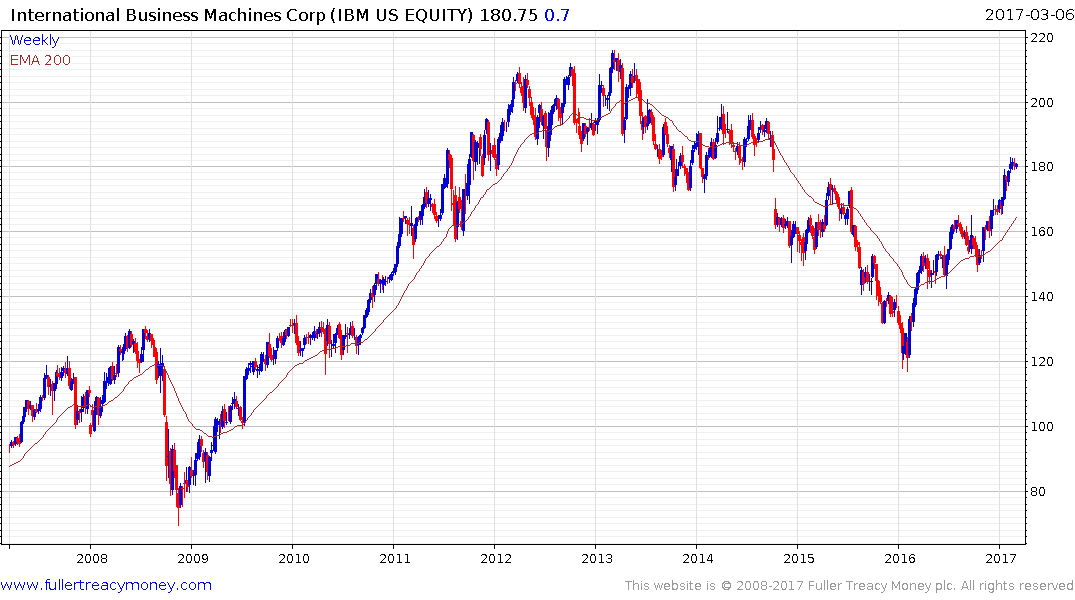IBM thinks it's ready to turn quantum computing into an actual business
This article by Mike Murphy for Quartz may be of interest to subscribers. Here is a section:
As it stands, IBM’s largest quantum computer has five qubits. By contrast the average laptop has hundreds of millions of bits in its processors, although the two types of computers are not directly comparable. IBM hopes, however, to continue its research with the aim of building quantum computers with roughly 50 qubits. For comparison, an IBM spokesperson told Quartz, you can simulate the computational power of a 25-qubit quantum computer on a regular laptop. At about 45 qubits, you’d need the world’s fastest supercomputers, and above 50, “you couldn’t build large enough classical computing systems to simulate that size of a quantum system.”
In IBM’s vision of the future, quantum computers could be used for discovering new drugs, securing the internet, modeling the economy, or potentially even building far more powerful artificial intelligence systems—all sorts of exceedingly complicated tasks. One area the company is looking at right now is in chemistry, attempting to simulate what’s going on in a molecule. “Even for simple molecules like caffeine, the number of quantum states in the molecule can be astoundingly large,” the spokesperson said, “so large that all the conventional computing memory and processing power scientists could ever build could not handle the problem.”
When Quartz visited IBM’s quantum computing lab in Yorktown Heights in 2015, the work being done was viewed as fundamental—research for the sake of research—rather than anything tied to specific business goals. But then again, so was the research that has since led to the creation of Watson. Originally conceived of to take on the question-as-answers gameshow of Jeopardy!, which researchers saw as a “unique and compelling AI question,” Watson has become a set of machine-learning and AI services that IBM sells, and intends to invest $1 billion into.
IBM is still in the throes of a major transition from physical hardware manufacturing to an almost total focus on knowledge based services. Artificial intelligence (Watson), and the tools to leverage that technology (massive & fast processing power) represent the key areas of focus in what is a new era for the company.

The share found medium-term support, following a three-year downtrend, in early 2016 and has held a progression of higher reaction lows since. It is somewhat overbought in the short term but a sustained move below trend mean, currently near $164, would be required to question medium-term scope for additional upside.
The evolution of big data allows us to ask big questions which were not possible previously. For example the project to map the human brain’s connectivity will require 50 petaflops computing power for the first attempt and considerable computing power to analyse it. That makes sequencing the genome or our individual microbiomes look like child’s play.


